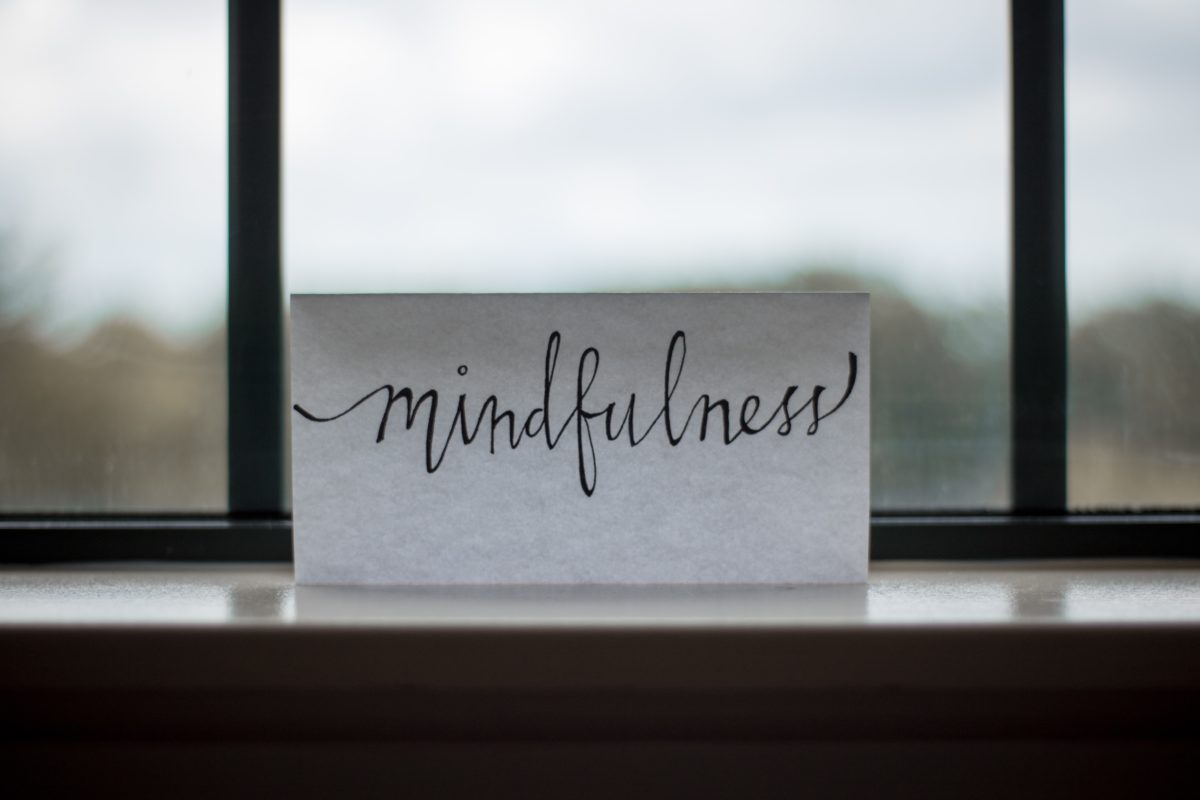What is Mindfulness?
Mindfulness. It’s a pretty straightforward word. It suggests that the mind is fully attending to what’s happening, to what you’re doing, to the space you’re moving through.
Often our mind takes flight, we lose touch with our body, and pretty soon we’re engrossed in obsessive thoughts about something that just happened. And that makes us anxious.
Mindfulness is the basic human ability to be fully present, aware of where we are and what we’re doing, and not overly reactive or overwhelmed by what’s going on around us.
How to be more mindful?
Reminding yourself to take notice of your thoughts, feelings, body sensations and the world around you is the first step to mindfulness.
Notice the everyday
Notice your everyday experiences through the five senses. This will interrupt the autopilot mode and provide you with new perspectives on the world and life. It’s easy to incorporate these informal practices into your daily life, for example, on your way to work you may focus on the journey. What are you seeing/smelling/hearing/tasting/feeling? What have you never noticed before? Become aware of your body, the feeling of your feet on the floor, the breeze hitting your exposed hands and face etc.
Keep it regular
It can be helpful to pick a regular time – the morning journey to work or a walk at lunchtime – during which you decide to be aware of the sensations created by the world around you.
Try something new
Trying new things, such as sitting in a different seat in meetings or going somewhere new for lunch, can also help you notice the world in a new way.
Embrace relaxation
Especially if you practice for even a few breaths or for a few moments. This relaxed feeling is an ally. It helps us to be more present, more mindful. Relaxation alone is not what mindfulness is about, however! It is about being present with awareness.
Name thoughts and feelings
To develop an awareness of thoughts and feelings, some people find it helpful to silently name them: “Here’s the thought that I might fail that exam”. Or, “This is anxiety”.
Free yourself from the past and future
You can practise mindfulness anywhere, but it can be especially helpful to take a mindful approach if you realise that, for several minutes, you have been “trapped” in reliving past problems or “pre-living” future worries.
Be careful not to try too hard.
Don’t try to make anything happen, or to achieve any special states or any special effects! Simply relax and pay as much attention as you can to just what is here now. Whatever form that takes. Allow yourself to experience life directly as it unfolds, paying careful and open-hearted attention.
Accept what you cannot change.
You cannot control everything, for example, if you have made a mistake the first thing you need to do is accept it and then you can manage the situation. Lack of acceptance can lead to further problems.
Mindfulness Practices
There are many different mindfulness practices – some are minutes long, some last up to an hour.
Mindfulness exercises are ways of paying attention to the present moment, using techniques like meditation, breathing, and yoga. Training helps people to become more aware of their thoughts, feelings, and body sensations so that instead of being overwhelmed by them, they’re better able to manage them. Practising mindfulness can give more insight into emotions, boost attention and concentration, and improve relationships.
Mindfulness and mental health
Mindfulness is recommended as a treatment for people with mental ill-health as well as those who want to improve their wellbeing.
Becoming more aware of the present moment can help us enjoy the world around more and understand ourselves better.
When we become more aware of the present moment, we begin to experience afresh things that we have been taking for granted.
There are different sorts of mindfulness meditation which can help people in different ways. Evidence shows compelling support for Mindfulness Based Stress Reduction (MBSR), which helps people to cope with stress, and for Mindfulness Based Cognitive Therapy (MBCT), which is designed to help people with recurring depression. They provide a flexible set of skills to manage mental health and support wellbeing.
Evidence has suggested the benefit of mindfulness to health and wellbeing, with results showing positive effects on several aspects of whole-person health, including the mind, the brain, the body, and behaviour, as well as a person’s relationships with others.
Is Mindfulness for me?
Mindfulness is recommended as a treatment for some people who experience common mental health problems, such as stress, anxiety and depression. It’s also for those who simply want to improve their mental health and wellbeing. Depending on what you’re looking for, there are different ways to learn mindfulness, which can help people in different ways. Anyone can learn and practise mindfulness: children, young people and adults can all benefit.
In the future we are going to talk more about different mindfulness practices and where and how mindfulness can be applied.

